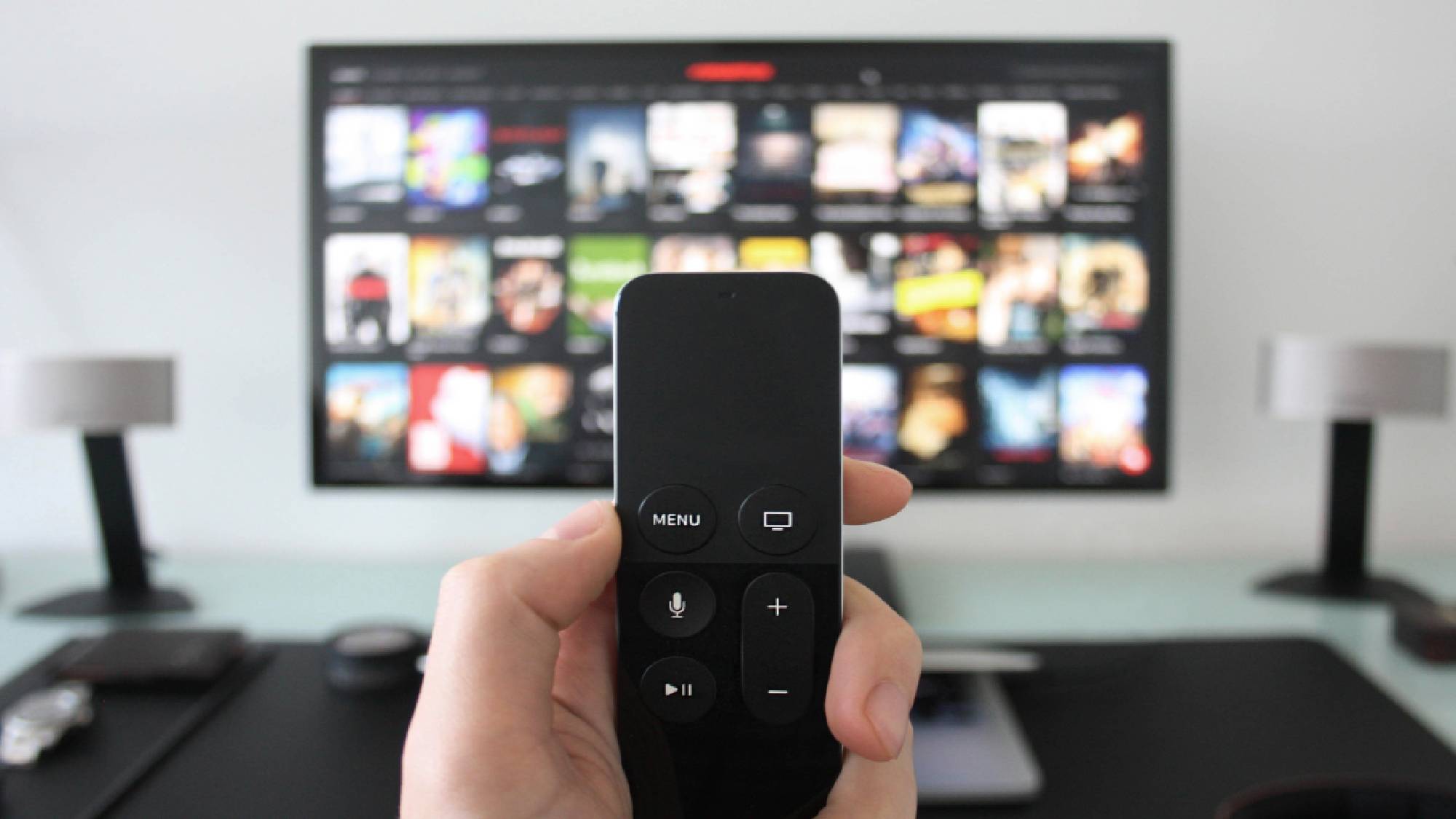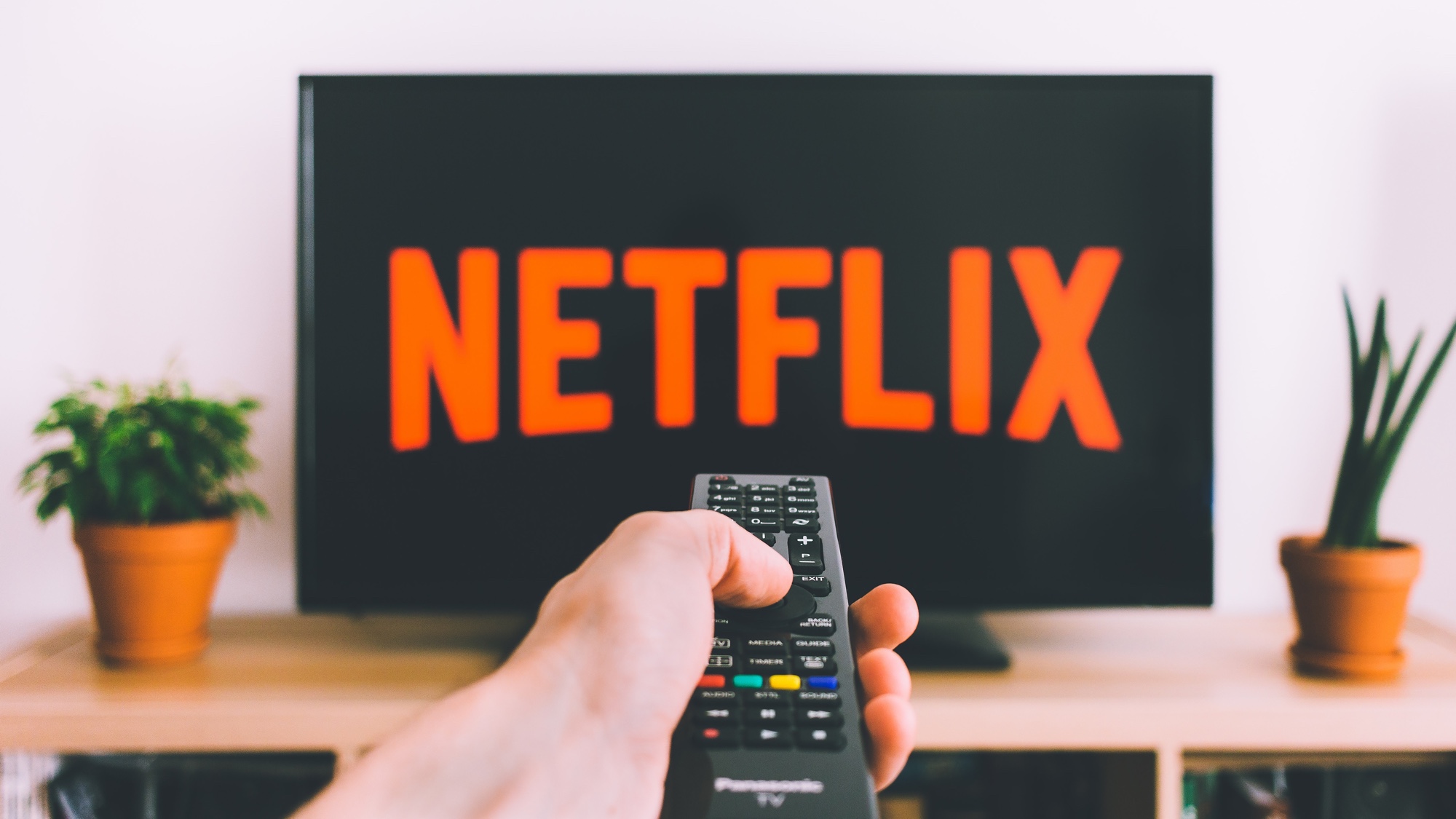How do streaming VPNs work?
Find out how VPNs can help you get around your content provider’s pesky geo-blocks

Here at Tom’s Guide our expert editors are committed to bringing you the best news, reviews and guides to help you stay informed and ahead of the curve!
You are now subscribed
Your newsletter sign-up was successful
Want to add more newsletters?

Daily (Mon-Sun)
Tom's Guide Daily
Sign up to get the latest updates on all of your favorite content! From cutting-edge tech news and the hottest streaming buzz to unbeatable deals on the best products and in-depth reviews, we’ve got you covered.

Weekly on Thursday
Tom's AI Guide
Be AI savvy with your weekly newsletter summing up all the biggest AI news you need to know. Plus, analysis from our AI editor and tips on how to use the latest AI tools!

Weekly on Friday
Tom's iGuide
Unlock the vast world of Apple news straight to your inbox. With coverage on everything from exciting product launches to essential software updates, this is your go-to source for the latest updates on all the best Apple content.

Weekly on Monday
Tom's Streaming Guide
Our weekly newsletter is expertly crafted to immerse you in the world of streaming. Stay updated on the latest releases and our top recommendations across your favorite streaming platforms.
Join the club
Get full access to premium articles, exclusive features and a growing list of member rewards.
If you're on the lookout for the best VPN services of 2021, it's likely that you're doing so because you're keen to enjoy the boost in content options that comes with using a streaming VPN.
Whether it's for more live sport, the newest Hollywood movies, or the latest television series from across the globe, virtual private networks are an increasingly popular tool in a viewer's armory. And, as with any tool, it's never a bad thing to learn exactly how they work.
In this article, we outline just how VPNs work to bolster your streaming options, and what you should consider when deciding on a service.
- Here are our latest tests on which VPNs work with Netflix
Why use a VPN for streaming?
For many, the primary reason for using a VPN is to gain access to more content. It may seem a strange thing to yearn for in the age of hundreds of cable and satellite channels, and dozens of on-demand streaming services, but the truth is that this wide selection now means that shows and films are spread out on tons of different services in different regions.
For example, TV licence holders in the UK can enjoy everything that BBC iPlayer has to offer, but the wealth of shows on US-only service Hulu are out of bounds for Brits, and even for Americans with Hulu subscriptions that are currently outside the US. US residents will also have no luck watching the latest BBC drama on iPlayer. That is, of course, unless they use a VPN which is specifically designed to tap into geo-blocked content from providers all over the world.
Even global streaming services you may already subscribe to, like Netflix or Amazon Prime, tailor their selection to regions, meaning some movies available in one part of the world may not necessarily be available to subscribers in another. Using a VPN, therefore, can place the entire catalog of global content at your disposal.
How does a VPN work?
Now that you know the considerable streaming bonuses on offer if you take advantage of a VPN, it’s worth familiarizing yourself with how a VPN actually does what it does.
Essentially, a VPN works by connecting your device to the Internet via a secure, private, and encrypted connection. Rather than connecting through your standard internet service provider (ISP), a VPN reroutes your device’s IP address through one of its own remote, intermediary servers.
This works to conceal your IP address, and can therefore mask the location of your streaming device—particularly where VPN servers are located in different countries. This trick, also known as spoofing, makes it possible to access geo-blocked content from a variety of streaming service providers.
Note that some service providers forbid the use of VPNs in their terms and conditions, though it's rare (and largely unheard of) for providers to cancel a subscription on the basis of catching you using one. Instead they’ll usually block access if they detect an active VPN, and allow you back in when they can’t.
Given the increase in popularity that has pushed VPNs from a niche product to a mainstream staple, installing and using VPNs has become an intuitive and easy-to-follow process. Simply complete all purchase and registration details online, then follow the installation instructions.
Once installed, most leading VPNs can be set to launch automatically on startup, meaning no further fuss when you’re ready to stream your favorite shows. Others offer tailored servers that are dedicated to providing the best Netflix VPN service, for example, or perhaps iPlayer VPN performance.
- What is a VPN? Here, we explain all

What makes a top VPN?
When searching for a VPN to boost your streaming options, key things to look for include reliability, speed, and global coverage. The likes of ExpressVPN and NordVPN are commonly ranked among the best because they tick those boxes.
ExpressVPN boasts more than 3,000 servers spanning 160 locations in over 90 countries, with its streaming capabilities supporting Netflix, Amazon Prime, iPlayer, YouTube, and Hulu. Meanwhile, NordVPN tops the number of servers (over 5,500) but is spread over fewer countries (59), while its SmartPlay feature encrypts data in a manner that optimizes HD streaming.
Bottom line
Whether you’re on holiday and missing your favorite show, or are simply keen to expand your content options from the comfort of your home, using a VPN for streaming can deliver unlimited viewing pleasure.
What do we recommend?
ExpressVPN stands out from the competition in terms of price, features, and value. With over 3,000 servers in nearly 100 countries, all the security features necessary, blazing connection speeds, and reliable access to multiple streaming services, ExpressVPN is an excellent choice for those after security with no compromises.
While some users may prefer certain features of other top VPNs, it’s the best overall option for most users – and now Tom’s Guide readers can claim three months absolutely free.
Get instant access to breaking news, the hottest reviews, great deals and helpful tips.
Alexis is a freelance writer and podcast producer with a Master's degree in Journalism. His love for creative technology stems from the day he was gifted his first ever digital voice recorder (a beloved Olympus WS 110), which brought with it the wonderful realisation that he'd never again have to rely on his iffy shorthand. Alexis has over 16 years of experience crafting articles for industry-leading print and online technology publications, including Tom's Guide, Creative Bloq, and TechRadar. When he's not writing, Alexis combines his love for travel and sports, interviewing adventurers and athletes all over the world.
 Club Benefits
Club Benefits












